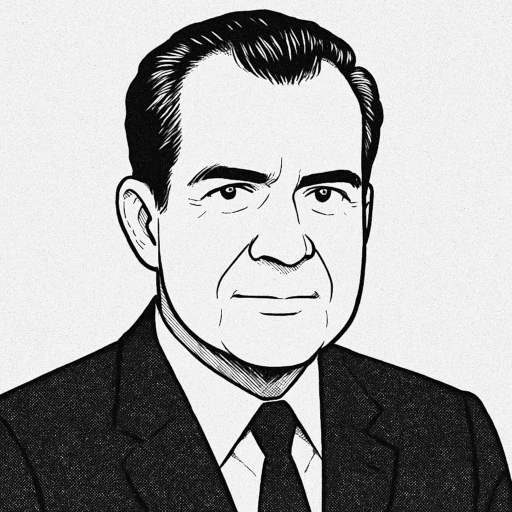“When the President does it, that means that it’s not illegal.”

- January 9, 1913 – April 22, 1994
- American
- The 37th President of the United States, Lawyer, Politician
table of contents
Quote
“When the President does it, that means that it’s not illegal.”
Explanation
This quote, delivered by Richard Nixon during his 1977 interviews with journalist David Frost, is one of the most controversial statements ever made by a U.S. president. It suggests a belief that the actions of the president are inherently legal simply by virtue of the office, effectively placing the executive above conventional legal standards. The phrase implies that presidential authority can override existing law, a notion that deeply challenges the foundational principle of the rule of law in a constitutional democracy.
Nixon made this statement in the aftermath of the Watergate scandal and his resignation, as part of his effort to explain, justify, or contextualize his actions while in office. In doing so, he revealed the extent to which he viewed executive power as exceptional and insulated from accountability. The remark was widely criticized as embodying the very mindset that led to the abuses of power uncovered during Watergate. It directly contradicts the constitutional balance of powers, which maintains that no individual—including the president—is above the law.
Today, this quote serves as a cautionary touchstone in discussions about executive overreach, checks and balances, and democratic accountability. It is frequently cited in legal, academic, and political debates to underscore the dangers of unchecked authority and the need for robust institutions that can hold even the highest office accountable. Nixon’s words remain a powerful reminder of why constitutional limits on power are essential to preserving the integrity of democratic governance.
Would you like to share your impressions or related stories about this quote in the comments section?

